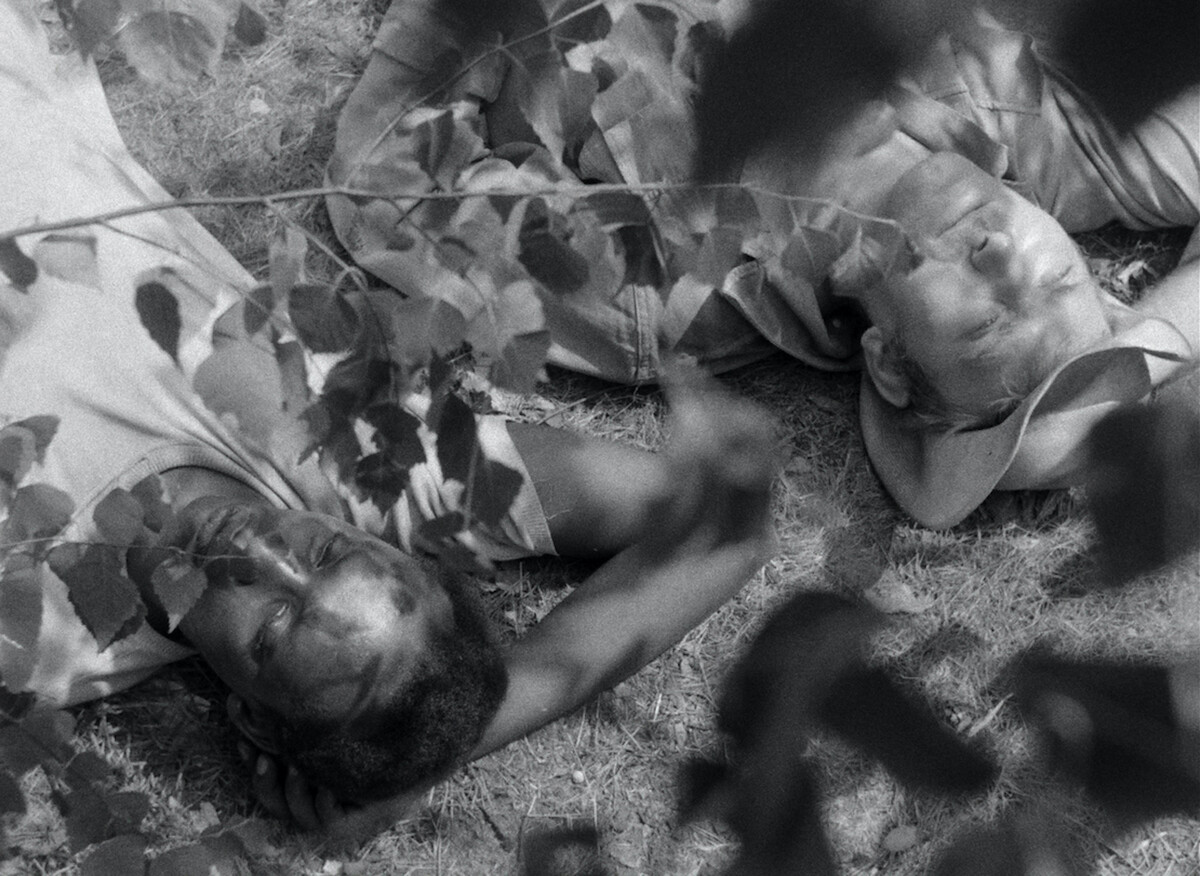Convened by
Jumana Manna
With films by Omar Amiralay, Caroline Monnet, Ibrahim Shaddad, Deborah Stratman, Mikhail Lylov and Elke Marhöfer, and Kush Badhwar; and interviews with the filmmakers and texts by Shuruq Harb, Shahira Issa, Jumana Manna, Sahar Qawasmi and Nida Sinnokrot, and Fawz Kabra
The largest migration of the twentieth century was not the consequence of a “natural catastrophe” or a war involving armed conflict, but a war of another kind—a perpetual war waged against soil, sustenance agriculture, and its knowledge forms, which resulted in overwhelming consequences for the social structures of rural life. Between the 1980s and the 2010s, more than seventy million people left the countryside for the cities in the Arab world alone. A great many of them sought to replace disappeared livelihoods, while others aspired towards the modern lifestyles and teleology of progress that cities offer. This rural-urban exodus was largely set off by a controversial array of agrarian reforms and state reconfigurations in the 1950s, 60s, and 70s (known as the “Green Revolution”) that introduced three central ingredients to the Global South: high-yield seeds, intensive irrigation techniques, and chemical inputs—among them, the chemicals that blew up Beirut on August 4.
In the weeks before we began mourning and raging over the destruction of one of the last few livable cities of the Middle East, the region, like many others, was experiencing new heights of precaution and paranoia with the second wave of Covid-19 cases. We would cross to the other side of the street to avoid germ-carrying humans, and make ourselves smaller amidst supermarket racks—spaces of potential virus transmission that are also a reminder of the world’s ecological imbalance. We planned for the great escape to quieter and greener landscapes, either temporarily (although we don’t quite understand what that means anymore) or, for some, permanently—as a lifestyle change we had been meaning to make but didn’t yet have the time, guts, or excuse to.
The city that before signaled pioneering lifestyles and progress appears today as a symbol of danger and defilement, of overconsumption, overpopulation, claustrophobia, and deferred futures. And the countryside and wilderness are projected as the place of safety and liberty, cleanliness and truth: of original happiness where age-old wisdoms were born and aged, only to suffocate into the amnesia of the city. This dichotomy has been set up since early modernity, sustained with each new historical rupture and economic turn, and now gains new optics with the spread of the pandemic.
In parallel to the urge to “return,” from early cinema till today filmmakers have been going back to the land, to study and draw inspiration from it—its traditions, its music, its cultural behaviors as a place of authenticity—either to critique ideological representations and claims to the countryside, or to perpetuate its imaginary in the name of the Nation. Sometimes, unwillingly doing both. Pushed out of their fields and ancestral lands, rural communities re-emerge as moving images of experimental film, fiction, and documentary. They remind us of the complexity of rural-urban relations and most importantly, the construction of the notion of authenticity. Modernity’s disregard for agrarian life and its historically deep knowledge-forms is challenged in the lenses of some of the filmmakers featured in this program, with works that date from the 1960s to today.
In Ibrahim Shaddad and Deborah Stratman, the rural is shown to be a place of deep-seated racism, of desired freedoms met with borders both mental and military; in Omar Amiralay, as struggle and resilience against the erasures of a violent regime’s centralized control. Caroline Monnet reshuffles archives that represent native life and labor, while Mikhail Lylov/Elke Marhöfer propose that soil is an archive of life in and of itself, which migrates as much as, if not more than, human lives.
The films compiled in this program are from different localities, not because we are all the same now, but because the impacts of global capitalism, of which the pandemic is mutant, have created uncannily similar forms of violence and resistance.
Take Me Back is a program convened by Jumana Manna as part of Artist Cinemas, a long-term, online series of film programs curated by artists for e-flux Video & Film. Take Me Back will run for six weeks from August 19 through October 3, 2020, screening a new film each week accompanied by an interview with the filmmaker(s) by Manna and invited guests.






